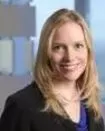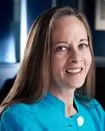In this episode of Women @ RopesTalk, hosted by intellectual property transactions partner Megan Baca, health care practice group co-leader Debbie Gersh interviews Jane Appleby, associate general litigation counsel at Advocate Aurora Health. Before attending law school, Jane spent nearly a decade traveling with and homeschooling her twin daughters. After earning her law degree from Marquette University Law School, she took on litigation work at a boutique litigation firm and at Quarles & Brady before being recruited in-house at Advocate Aurora. Jane discusses her fascinating and unconventional career path, her egalitarian approach to leadership, and how Advocate Aurora has responded to the work-from-home, health and wellness challenges brought on by the pandemic. She also offers advice to those pursuing non-traditional career paths and reflects on her love of nature and the outdoors.
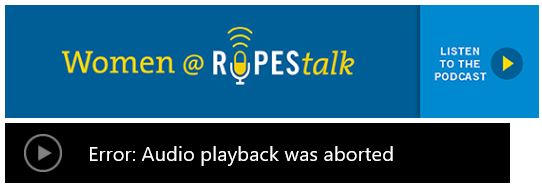
Transcript:
 Megan Baca:
Welcome, and thank you for joining us on our latest installment of
Women @ RopesTalk, a podcast series brought to you by The
Women's Forum at Ropes & Gray. In this podcast, we
spotlight extraordinary women who have had successful careers and
interesting lives, and are also making a positive impact in their
workplaces and in their communities. We feature women attorneys at
Ropes & Gray in conversation with prominent women clients,
industry leaders, entrepreneurs and others about their careers and
what's led to their successes, the challenges they've
faced, and the hard-earned wisdom they've acquired. I'm
Megan Baca, a partner at Ropes & Gray with a practice focusing
on intellectual property and technology transactions across
technology, health care and life sciences, and I'm based in
Silicon Valley. On this episode, I'm joined by my colleague,
Debbie Gersh, who's based in Chicago. Debbie, thank you so much
for joining us today. Would you mind introducing yourself and
providing an overview of your practice for our listeners?
Megan Baca:
Welcome, and thank you for joining us on our latest installment of
Women @ RopesTalk, a podcast series brought to you by The
Women's Forum at Ropes & Gray. In this podcast, we
spotlight extraordinary women who have had successful careers and
interesting lives, and are also making a positive impact in their
workplaces and in their communities. We feature women attorneys at
Ropes & Gray in conversation with prominent women clients,
industry leaders, entrepreneurs and others about their careers and
what's led to their successes, the challenges they've
faced, and the hard-earned wisdom they've acquired. I'm
Megan Baca, a partner at Ropes & Gray with a practice focusing
on intellectual property and technology transactions across
technology, health care and life sciences, and I'm based in
Silicon Valley. On this episode, I'm joined by my colleague,
Debbie Gersh, who's based in Chicago. Debbie, thank you so much
for joining us today. Would you mind introducing yourself and
providing an overview of your practice for our listeners?
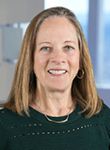 Debbie
Gersh: Of course. And thanks, Megan—I really
appreciate the opportunity to do so. I am the co-practice group
leader of the health care group, and I work with a wide variety of
health care and life sciences industry clients, with a focus on
strategic health care transactions, HIPAA privacy, security and
data use matters, as well as assisting clients who are unfortunate
victims of data breaches.
Debbie
Gersh: Of course. And thanks, Megan—I really
appreciate the opportunity to do so. I am the co-practice group
leader of the health care group, and I work with a wide variety of
health care and life sciences industry clients, with a focus on
strategic health care transactions, HIPAA privacy, security and
data use matters, as well as assisting clients who are unfortunate
victims of data breaches.
Megan Baca: Who is the special guest that you'll be interviewing on this episode today?
Debbie Gersh: On this episode, I'll be joined by Jane Appleby from Advocate Aurora Health. Jane is their in-house litigation, dispute resolution and crisis management counsel, and she oversees the defense of everything, excluding labor and employment law, but everything else related that takes the country's ninth largest health care system into court. In that role, Jane is tasked with coordinating the defense of pretty complex commercial litigation cases as well as government investigation. She also advises on medical malpractice and pharmacist liability claims, so as you know, she has a very busy plate. But most interestingly, Jane also handles the type of very odd issues that come with representing a large health care system—from conflicts with law enforcement to ethical questions that emerge when a vulnerable patient no longer in need of acute care decides that he would prefer to remain at the hospital as opposed to returning to life on the streets. That is a challenge for many of our not-for-profit hospitals in particular. It is a result of this latter category of duties that Jane claims to have the most interesting job in her organization.
Megan Baca: It sounds like Jane has a really interesting career doing complex work, and that work doesn't really fit into any particular box. I can't wait to hear more from her. How did you and Jane start working together?
Debbie Gersh: Actually, I was working with a number of her colleagues and on compliance-related matters, and because Jane is in litigation and had some additional questions regarding a particular HIPAA matter, they referred her to me, and that's how we started working together.
Megan Baca: After working with Jane and getting to know her, you mentioned what an interesting career and interesting questions come across her desk. What would you say is most notable about Jane's career?
Debbie Gersh: Her career path, and there actually is an article from the Marquette Law Review that honored her. She actually didn't go to law school until, I believe, in her 30s, and after she raised two children, twin daughters. It really was incredible what she did and how she balanced her work, her career, and before that, going to law school while homeschooling and raising two children. So I think it really will provide the audience with an incredibly novel and interesting viewpoint as to what law meant to her and how she decided to go to law school.
Megan Baca: That is an incredible story, especially the homeschooling part—we can all relate these days. I think our listeners will love hearing from Jane. So with that, I will turn it over to you and Jane for your conversation.
Debbie Gersh: Thank you so for joining us today. I am personally thrilled that you're willing to share your journey to becoming a successful mentor and lawyer. I thought I would begin by asking you to provide us an overview of what I consider to be a rather unique career path?
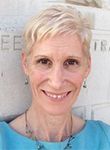 Jane
Appleby: Debbie, first of all, I want to thank you for
asking me to participate in this project. It's been fun
thinking about what might be helpful to share with listeners, and I
have very much enjoyed talking with you and brainstorming about the
topics to cover. So, I have had a very unusual career path. I was a
non-traditional undergraduate student, and, therefore, also a
non-traditional law student, but it wasn't even a straight
trajectory between undergrad and law. I took off about a decade to
take care of my twin children and to homeschool them. The
undergraduate career began at UC Berkeley when I was in my
early-20s. I ended up in the Bay Area having followed the Grateful
Dead for a while, and lived in a school bus. When I realized that
making bead earrings probably wasn't going to be a good living
for my whole life, I started taking some temp jobs that eventually
landed me at Merritt-Kraus Medical Center working for a wonderful
chief nursing officer named Nancy Madsen. Nancy encouraged me to go
back to school, and I applied to UC Berkeley and, lo and behold,
got in. I began there thinking that I would be a geography major,
but, eventually, my process had me majoring in philosophy with a
focus on ethics and minoring in classical civilization. I
didn't finish that until I was in my late-20s.
Jane
Appleby: Debbie, first of all, I want to thank you for
asking me to participate in this project. It's been fun
thinking about what might be helpful to share with listeners, and I
have very much enjoyed talking with you and brainstorming about the
topics to cover. So, I have had a very unusual career path. I was a
non-traditional undergraduate student, and, therefore, also a
non-traditional law student, but it wasn't even a straight
trajectory between undergrad and law. I took off about a decade to
take care of my twin children and to homeschool them. The
undergraduate career began at UC Berkeley when I was in my
early-20s. I ended up in the Bay Area having followed the Grateful
Dead for a while, and lived in a school bus. When I realized that
making bead earrings probably wasn't going to be a good living
for my whole life, I started taking some temp jobs that eventually
landed me at Merritt-Kraus Medical Center working for a wonderful
chief nursing officer named Nancy Madsen. Nancy encouraged me to go
back to school, and I applied to UC Berkeley and, lo and behold,
got in. I began there thinking that I would be a geography major,
but, eventually, my process had me majoring in philosophy with a
focus on ethics and minoring in classical civilization. I
didn't finish that until I was in my late-20s.
In my last year of school, I became pregnant with twins and decided that I wanted to take some time to spend with my kids. Their dad was a symphony musician and traveled quite a lot, so I went from following the Grateful Dead to following symphonies. Because of his travel and my desire that they have a lot of time with him, we made the challenging decision to homeschool, and I think "challenging" because I come from an academic family and there was great concern about not having the children be in traditional school, but I committed to making a decision year-by-year, based on the how the kids were doing. I got a hold of our local curriculum so that I made sure that I hit all of the topics that their peers were covering. I homeschooled them until they were in seventh grade. During the last few years of homeschooling, I decided that I would go to law school, and fortunately at that time, Marquette had a night program. So in my mid-30s, I began law school and fortunately graduated in the top 10% of my class, and found my way to an opportunity at a boutique litigation firm that was doing professional liability defense work. And I did that, which fed my love of ethics and questions about ethics, and eventually was recruited to Quarles & Brady's commercial litigation team where I did some professional liability defense work and eventually began working for what was then Aurora Health Care. When my work for that client got to be about 50% of my workload, I was invited to come in-house. I was, at that time, only the third attorney for the health care system, which consisted of 15 hospitals and hundreds of clinics—it was, at that time, the state of Wisconsin's largest private employer. It's now Advocate Aurora Health Care, with a footprint in Illinois, Wisconsin and a toe dip into Michigan. I am litigation counsel for Advocate Aurora Health and never a dull day in that position, I'll tell you. So a very circuitous route in my career.
Debbie Gersh: It's just incredible that you could accomplish all that. I know that when I look today at a lot of the young mothers who are balancing having kids at home and either remote teaching or homeschooling and working, I see the challenges and how real they are. And with technology, that has improved things, so that you did all that during that time is just absolutely incredible to me—just crazy. One of the things that I wanted to talk to you about, because when we had first met, if you will, and we started working together, there were a few large meetings that I was fortunate enough to participate in with you. What I found just striking was your approach, one that I have rarely seen, but it was really about hearing all opinions, seeking all opinions, never forcing your will or opinion on others or mandating them, but leading through that gentle approach. I just wanted to get your perspective on how you developed that approach—or was it always just part and parcel of how you worked?
Jane Appleby: Thank you for that compliment. I take a fundamentally egalitarian view in how I conduct my work. I think I have that view in my personal life as well. I truly believe that it takes all hands to move the ship. I truly believe that my role is no more important than the roles of my subordinates. In fact, I struggle with the perspective of being anyone's boss. I view my team as my team, and I think that everyone's voice is terribly important. And truly, the most successful ventures, I think, are led by people who take that approach. Even in situations where we disagree with one another, I think it's important to hear the perspectives of my colleagues. We're very much in a period of time where I think big businesses are looking at diversity and inclusion, and the principles that are guiding businesses to look at diversity and inclusion are all about egalitarianism, all about consensus building and understanding different viewpoints can lead to best results. I think especially in health care that's true because health care reaches every person in the population, and if we are not representing all types within our workforce, how will we know how to reach our patients and their families? How will we know how to serve our communities unless we are taking into consideration perspectives that are different than our own? So that's been my approach. I will say that mothering twins, dealing with two children who are the same age, requires quite a lot of mediating and advocating to ensure that both children, especially if they look alike, are perceived as individuals in their own right. So I think mothering twins also helped me with this.
Debbie Gersh: Most definitely—challenges for sure. When you think about the start of the pandemic and the things that you expected to see and the challenges you thought you would be facing as you moved forward, particularly when no one really understood the disease, and I know there was a lot of concern about, "Would we have adequate beds? How do we mobilize for this?" What did you draw on? Obviously, life experience, clearly, but how did you, if you will, galvanize the folks who you were working with to prepare for that, not just at the hospital, but to the extent folks were working from home? Because I think it was an easier choice for many of us, for example, just being in a private law firm, we could work remotely—it didn't really matter. But, in your case, in a large hospital system, so many people had to be there and on the ground, and how did you work through that?
Jane Appleby: I think that lawyers are, for the most part, fundamentally service-oriented. And litigators, in particular, are fundamentally—and I know these are broad brush strokes—but I think litigators are fundamentally champions of other people and causes. My perspective on the pandemic: First of all, I want to praise leadership at Advocate Aurora for making the difficult decision very early on (in mid-March) that every worker who could work from home, should work from home. It was mandated, and I remember people thinking that it would be a matter of a few weeks. I didn't think it would be a matter of a few weeks. I will say I didn't think it would be a matter of more than a year. I now think it will be a matter of more than a year before this is under control, because sadly, we haven't had bipartisan leadership that would have guided us in the direction of curbing this beast before it started growing exponentially the way that we've seen in the last few weeks. So our leaders had the foresight to send everyone home who could work from home, and myself and my colleagues for the most part, I think, have taken the attitude that we owe it to the frontline team members—which is what we call each other at Advocate Aurora—we owe it to those frontline workers who cannot work from home to do all that we can to make their lives easier, not only professionally, but in our personal lives. So I have been being very cautious for months, and so have my colleagues, while seamlessly trying to provide the support that frontline health care workers need. I'm terribly concerned about situational depression and anxiety among the workforce. I feel as though I'm seeing bad behavior, not among my team members, but among patients and families who are struggling—many of them struggling even more than either of us can imagine, and I think that we need to dig down deep to find ways to support each other and bolster each other's spirits while dealing with these particularly difficult challenges. We've been recently told that we are likely to be working from home for many more months and that, in fact, our business model may change now that we see that we can work seamlessly from home, and I support that. It's a challenging economic time and whatever we can do to ensure the success of the business so that we can keep people employed, makes good sense to me, but it definitely has been challenging.
Debbie Gersh: I know workforce is key, and there's a lot of touchpoints here for you because you are the caretakers as well, the caretakers of your clients, so to speak, who are the providers, and they need care. There's all sorts of stresses and worries about their safety and continuing to be able to service their patients the way they want and all of the things that we're hearing about now. Are you looking to put other programs or thought about how you're going to do business in that way? You had alluded to it earlier, but just wondered about leaves of absences, time off, flex schedules—ways in which we can think about accommodating our staff otherwise?
Jane Appleby: I think the decision to have people work from home who can work from home was made, in part, anticipating that many people in our workforce have school-age children who may or may not be able to go to school. So if they are needing to tend to children at home and do their job, having the certainty that they will be allowed to work from home for the duration I think has been a tremendous effort that leadership has made on behalf of our workforce. But also seeing departmental and also system efforts at coaching people on health and wellness during this very stressful time. One of my colleagues coordinated a Qigong class as an introduction for our department for those people who wish to participate—there was no requirement that people participate, just an opportunity. In the past, when we were in office, I had worked with some colleagues on meditation exercises, taking routine breaks for meditation, and that's something that I think personally, I may bring back and offer colleagues guided meditations. I think taking 10 or 15 minutes of time in the midst of a day to center can help tremendously with health and well-being, and I'm seeing other efforts like that across different departments. I'm a big fan of simple efforts to brighten people's days. I probably to an obnoxious extent, make a point of responding to email communications with "thank you," and I make a point of asking for things with "please," and noticing when people help me, and noticing it in a public way. I say "obnoxiously so" because that can create email traffic that bothers some people and I'm aware of that, but I think "please" and "thank you" are so important that I would rather risk irritating a few people who have one more email to throw away than have my colleagues feel as though they aren't noticed and appreciated. I think that can go a long way towards a happier, healthier workforce.
Debbie Gersh: I totally agree. I think it's the little things now that really become the big things—that people know they're appreciated, that they matter, that they're part of the team and the team can't work without them. And I think sometimes people forget that those little things are the big things. In watching how you work with your team, and again, not to overstate that, but I cannot begin to tell you what a warm feeling I have because you can hear the affection back, and I think that's one of maybe the small benefits that have come from this. One of the other questions I wanted to ask you is, if there was one piece of advice that you would give for those who start a career later and don't go through that, what we would call a more "traditional path," whatever that really means, but I think you understand that, having had a unique career path, what would it be?
Jane Appleby: I had an advantage in that I was a non-traditional student, and I had no question in my mind that parenting was more important than doing well in law school. I don't want to minimize the importance of doing well in law school; I think if one embarks upon law school and incurs the likely debt that comes with it, one really ought to have one's eye on doing very well, but there was never any question in my mind what was most important in my life, and it wasn't law school. And honestly, it also was not my career. That said, my very first law professor was a man named Howard Eisenberg. He was a criminal lawyer, and then a teacher, and then ultimately the dean of the Marquette Law School—the only Jewish dean that Marquette Law has ever had, probably the only Jewish dean in any department that Marquette Law has ever had. Howard was an extraordinary person and did a ton of pro bono work—post-conviction pro bono work. Howard inspired us to do well by doing good, and that stuck with me. It's certainly an ethic that my parents, who were social and political activists as well as professionals, instilled in me. Again, back to the heart of service, and I really think that lawyers tend to have hearts of service. So, "do well by doing good"—and it's with that idea in mind I think whatever role our professions play in our lives, and again, I don't want to minimize the importance of my professional life in my life—it matters a lot to me—I think if we keep that motto in mind, it can't help but go well. It also can't help but be rewarding because we are undertaking any task that comes our way with the idea in mind that we will do something good for other people.
Debbie Gersh: Do you have any favorite... "favorite's" probably not the right word, but what do you do for fun? Tell me something that people would be surprised to learn about you, if you're willing to share?
Jane Appleby: I'm a bird nerd. I love nature, and I love birds. I'm an amateur naturalist. The natural world completely fascinates me. There isn't anything more exciting to me than to be with my closest family and friends and to spot something wonderful in nature. This morning, I took a walk for a few minutes, just a few blocks from my house, and was delighted to see a kingfisher. I could hear the call—I knew what it was before I spotted him, and then I spotted him. It's a kind of bird. And I love dogs, so animals, birds, anything in nature just thrills me. I love kayaking. I love whitewater rafting. I don't get to do that so much these days, but really, happiest times whatever I'm doing are when I'm with my family. The pandemic has been tough because I don't have kids at home and I don't have family here, so thank goodness for Zoom meetings and walks with my daughter, who's a veterinarian in the area, because those little touchpoints have kept me going. What's funny about that, though, is that I have colleagues with small children at home who literally can get a moment alone only if they go in their own closets. And the contrast—if I could borrow their little kids for an afternoon, I surely would, and if they could lend their little kids for an afternoon, they surely would.
Debbie Gersh: It's so true, and the craziness goes away and you miss that, too.
Jane Appleby: Yes, but I think the thing is, if we can stay in this space of remembering that the only constant is change, and then focus our hearts on appreciating whatever lovely there is to be had about this moment and in most moments, for most of the people who will be listening to this podcast, there is something lovely to be found. That's where I'm trying to put my mind and my heart to get through these tough times. And then insofar as I have any extra energy, trying to help somebody else who may be struggling to feel a little bit better in that moment, too.
Debbie Gersh: So Jane, I just want to thank you for really providing us an insight into not only your professional time, but also your philosophy in life. I think it's really important to share those things, because I don't think we do enough of that in our busy days. And day in that you take the time to do that is impressive, because I think in our other discussion, that being able to reach out and being able to make that contact, especially now, goes a long way. But something to take with us as we move forward and when we eventually emerge here, I think there are going be some good lessons learned, hopefully, from all of this and ways in which we can change, not just how we work, but how we work with people. So I just wanted to give you a chance to say anything final?
Jane Appleby: Debbie, thank you so much. I guess I would close by saying you've given me a lovely gift here in an opportunity to reflect. So I walk away with this, reminded of the fact that these opportunities in life that cause us to pause and think about what we really love and think about our own lives in a way that helps us make sense of the paths that we've taken—it's a healthy practice. So I thank you for giving me that gift. And I just would encourage our listeners to maybe find a way to do this exercise that we've just done here, with a friend. Debbie, maybe next time I'll have to interview you.
Debbie Gersh: There you go—turnabout's fair play. All right, that's a wrap. Thank you, Jane.
Jane Appleby: Thank you.
Megan Baca: Debbie and Jane, thank you both so much. That was a wonderful discussion. And thank you to our listeners. For more information about Ropes & Gray's Women's Forum and our women attorneys, please visit ropesgray.com/women. You can also subscribe to this series wherever you typically listen to podcasts, including on Apple, Google and Spotify. Thanks again for listening.
The content of this article is intended to provide a general guide to the subject matter. Specialist advice should be sought about your specific circumstances.

